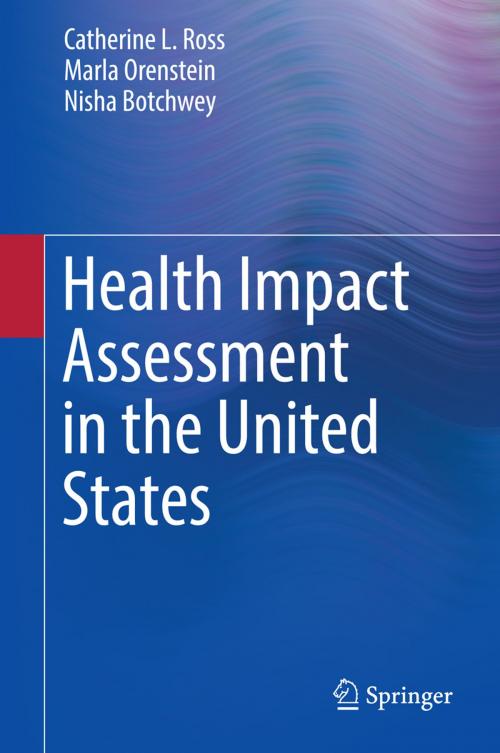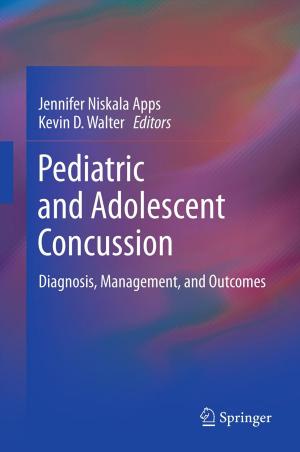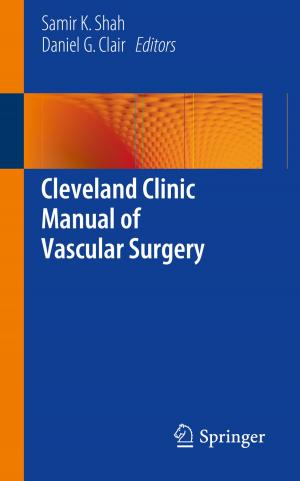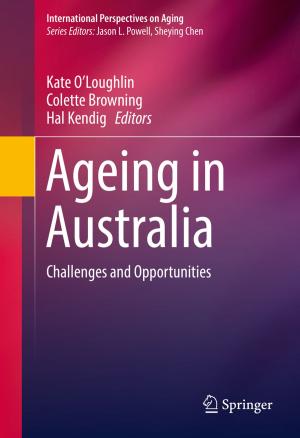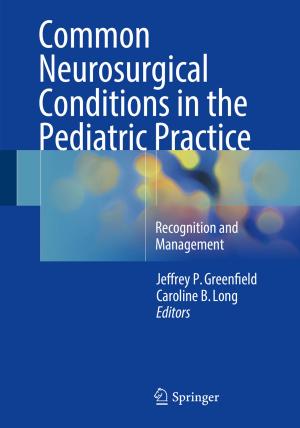| Author: | Catherine L. Ross, Marla Orenstein, Nisha Botchwey | ISBN: | 9781461473039 |
| Publisher: | Springer New York | Publication: | March 12, 2014 |
| Imprint: | Springer | Language: | English |
| Author: | Catherine L. Ross, Marla Orenstein, Nisha Botchwey |
| ISBN: | 9781461473039 |
| Publisher: | Springer New York |
| Publication: | March 12, 2014 |
| Imprint: | Springer |
| Language: | English |
A new public policy initiative is proposed, or a large-scale construction project. What is its potential impact on the health of the population? Are there adverse effects to address, health benefits to be promoted, some combination of both? A Health Impact Assessment (HIA) is a cross-disciplinary means of answering these and other complex questions, so programs, projects, or policies can be adjusted accordingly.
Health Impact Assessment in the United States analyzes the goals, tools, and methods of HIA, and the competencies that are central to establishing best practices. It sets out the core principles that differentiate HIA from environmental and similar assessments, fleshing them out with case examples from the U.S. and abroad. Details of each step of the HIA process take follow-through into account, giving readers insights into not only collecting and evaluating data, but also communicating findings effectively to decision-makers and stakeholders. The book's expert coverage includes:
- The importance of HIA to policy development.
- Introduction to public health, community planning, and health assessment.
- Overview of the core concepts of HIA, with illustrative examples.
- Step-by-step guide to conducting an HIA, from screening to evaluation.
- Emerging technologies shaping HIA tools and procedures.
- Appendices featuring sample assessment sections and other resources.
The HIA has an increasingly vital place in the future of health-related policy, making Health Impact Assessment in the United States a valued manual and critical ideabook for students and practitioners in public health, public policy, urban planning, and community planning.
“This book charts the growth of HIA in the United States, and provides invaluable guidance on conducting HIAs and utilizing their results. Very highly recommended.”
Howard Frumkin, MD, DrPH, Dean, University of Washington School of Public Health
“This new book by three internationally recognized leaders in the field provides a practical guide to using this tool to identify important but often unrecognized opportunities and risks for health created by decisions in transportation, housing, energy, and other sectors.”
Aaron Wernham, Director of the Health Impact Project, a collaboration of the Robert Wood Johnson Foundation and The Pew Charitable Trusts.
“This book makes an important contribution to the health impact assessment field and is a great resource for practitioners, researchers and students… it helps the reader to not only understand HIA but to do it.”
Ben Harris-Roxas, Conjoint Lecturer, Centre for Primary Health Care and Equity, University of New South Wales; Health Section Co‐Chair, International Association for Impact Assessment; Consultant, Harris‐Roxas Health.
“Health Impact Assessment in the United States is an important resource… helping to uncover hidden causes of health inequities in proposals and identifying potential solutions before the proposals are implemented.”
Angela Glover Blackwell, Founder and CEO, PolicyLink
A new public policy initiative is proposed, or a large-scale construction project. What is its potential impact on the health of the population? Are there adverse effects to address, health benefits to be promoted, some combination of both? A Health Impact Assessment (HIA) is a cross-disciplinary means of answering these and other complex questions, so programs, projects, or policies can be adjusted accordingly.
Health Impact Assessment in the United States analyzes the goals, tools, and methods of HIA, and the competencies that are central to establishing best practices. It sets out the core principles that differentiate HIA from environmental and similar assessments, fleshing them out with case examples from the U.S. and abroad. Details of each step of the HIA process take follow-through into account, giving readers insights into not only collecting and evaluating data, but also communicating findings effectively to decision-makers and stakeholders. The book's expert coverage includes:
- The importance of HIA to policy development.
- Introduction to public health, community planning, and health assessment.
- Overview of the core concepts of HIA, with illustrative examples.
- Step-by-step guide to conducting an HIA, from screening to evaluation.
- Emerging technologies shaping HIA tools and procedures.
- Appendices featuring sample assessment sections and other resources.
The HIA has an increasingly vital place in the future of health-related policy, making Health Impact Assessment in the United States a valued manual and critical ideabook for students and practitioners in public health, public policy, urban planning, and community planning.
“This book charts the growth of HIA in the United States, and provides invaluable guidance on conducting HIAs and utilizing their results. Very highly recommended.”
Howard Frumkin, MD, DrPH, Dean, University of Washington School of Public Health
“This new book by three internationally recognized leaders in the field provides a practical guide to using this tool to identify important but often unrecognized opportunities and risks for health created by decisions in transportation, housing, energy, and other sectors.”
Aaron Wernham, Director of the Health Impact Project, a collaboration of the Robert Wood Johnson Foundation and The Pew Charitable Trusts.
“This book makes an important contribution to the health impact assessment field and is a great resource for practitioners, researchers and students… it helps the reader to not only understand HIA but to do it.”
Ben Harris-Roxas, Conjoint Lecturer, Centre for Primary Health Care and Equity, University of New South Wales; Health Section Co‐Chair, International Association for Impact Assessment; Consultant, Harris‐Roxas Health.
“Health Impact Assessment in the United States is an important resource… helping to uncover hidden causes of health inequities in proposals and identifying potential solutions before the proposals are implemented.”
Angela Glover Blackwell, Founder and CEO, PolicyLink
